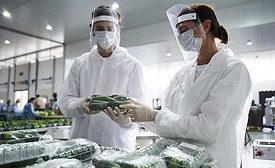Management
Part 2 of this article series explores food safety and business decision-making in the face of cognitive security threats
Read More
Uncovering the Hidden Triggers Behind the Surge in Food and Beverage Recalls—Part 1
What are the underlying factors contributing to food safety and quality issues, and how can companies close critical gaps to prevent costly recalls?
December 17, 2024
Supplier Collaboration on Food Safety Issues
When suppliers and customers partner together effectively, issues are resolved more quickly and with better outcomes
December 16, 2024
BIZTRACKS
Penn State Extension Offers Self-Paced, Online Food Packaging Course
December 11, 2024
Never miss the latest news and trends driving the food safety industry
eNewsletter | Website | eMagazine
JOIN TODAY!Copyright ©2024. All Rights Reserved BNP Media.
Design, CMS, Hosting & Web Development :: ePublishing









